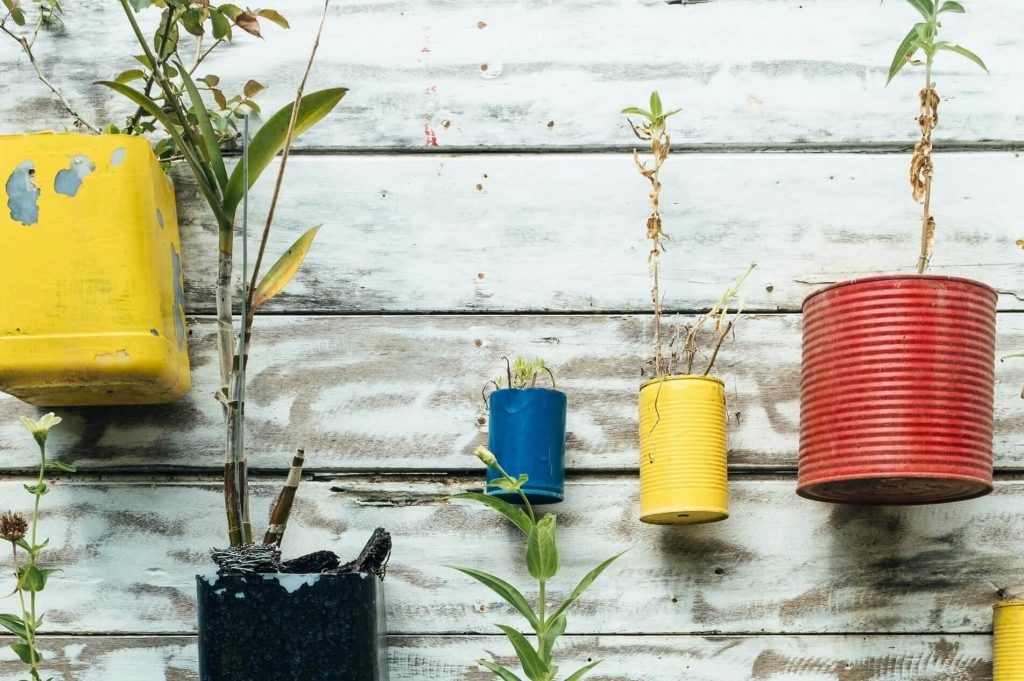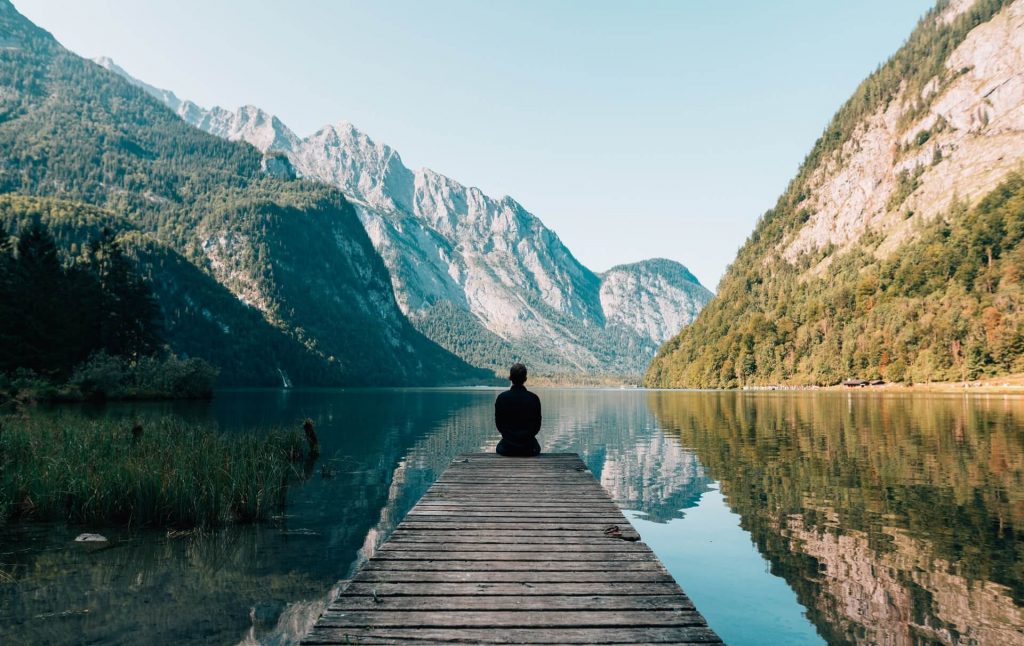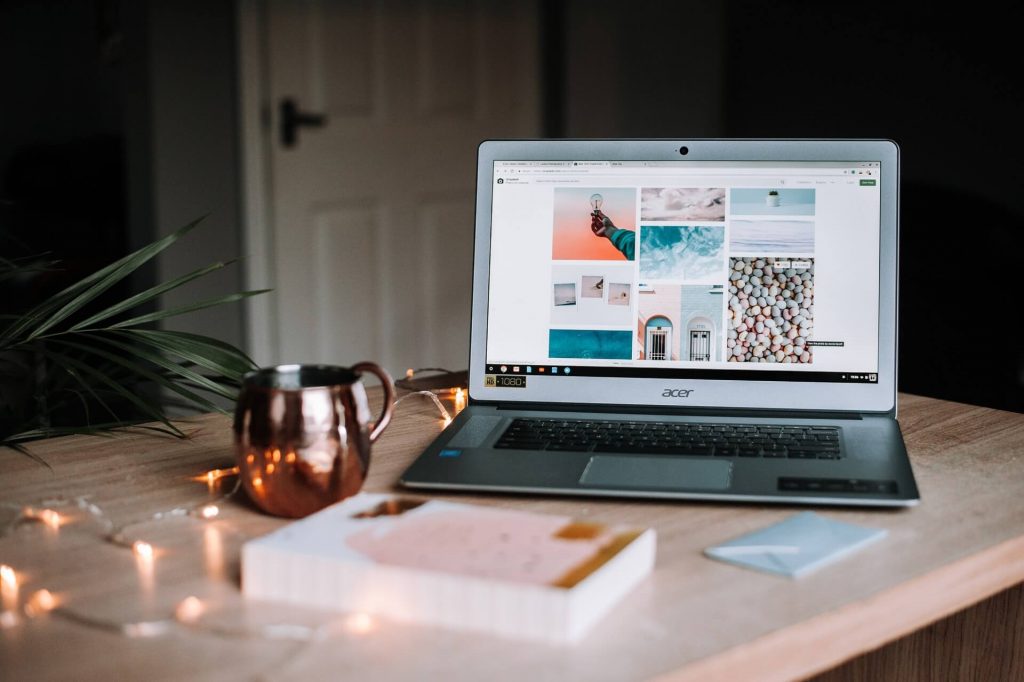Taking up a new hobby or learning a new skill can really put a spring in your step. And with the days getting longer and summer fast approaching (in the northern hemisphere at least) now is a great time to stay positive and try out some new things.
Here are some hobbies and skills that are both sustainable and enjoyable!
1. Cooking
Cooking is one of those things that everyone wants to be good at, myself included. If you can whip up a good meal you are a demigod in my eyes!
Not only is cooking enjoyable and incredibly useful, but the sustainability and health benefits are substantial as well.
More home cooked food means less pre-packaged and processed junk, and more healthy wholesome meals!
Minimalist Baker and Cookie and Kate are two very popular online food blogs which focus on whole foods and simple recipe ideas. Many of their recipes are also vegetarian and vegan.
2. Gardening
Gardening might just be the ultimate eco-friendly hobby. It’s a relaxing and enjoyable pastime that pretty much anyone can do, and growing your own food is the epitome of sustainable living.
And you don’t need acres of space to get started. Herbs and small plants can be grown on any little windowsill, and if you have a little bit of garden space, your options are endless.
GIY.ie is a great starting resource for beginner gardeners featuring growing guides and instructions on how to get your garden up and running.
3. Upcycling and DIY

Upcycling is the act of taking old or damaged items and remaking them into something useful. It can be something as simple as using old jam jars as drinking glasses or turning used plastic bottles into flowerpots.
Resourcefulness and creativity are at the centre of all things eco-friendly. And upcycling is the perfect hobby for both.
Even if you don’t have old items to upcycle, just being able to do some basic DIY and carpentry work is a great sustainable skill. It will not only allow you to create and build the things you need, but it (literally) gives you the tools to repair which is one of the pillars of sustainability.
Check out my post on home green DIY projects for some DIY and upcycling inspiration.
4. Sewing, Embroider, Knitting & Crocheting
If carpentry and crafts aren’t your thing, why not try replacing the hammer and nails with a needle and thread. Sewing, embroidery, knitting and crocheting can be just as creative, and enjoyable as any other DIY hobby.
Not to mention how useful these skills are when it comes to taking care of your clothing. Basic sewing or embroidery skills will allow you to fix damaged clothes and even tailor ill-fitting garments to size.
And if you can get hold of some reclaimed yarn you can make yourself some homemade hats, gloves and sweaters with your newfound knitting and crochet skills.
Here are a few tutorials to get you started:
- Crocheting – Knitting – Sewing – Embroidering
5. Meditation & Mindfulness

Everyone has their own version of meditation. It could be that some of the other more active hobbies on this list are actually what provide that inner calm. Whatever it is, taking the time to meditate or clear your head is a hobby and a skill which will make you more productive.
All you require is whatever helps you relax, so it’s probably the lowest impact hobby on this list!
You can try out some meditation videos on YouTube or opt for some calming music or background noise to help you relax. Whatever works for you.
6. Education and Learning
Investing time in your education, no matter what age you are, is a great habit to get into. It could be a part-time course, or a little time set aside each day to learn about a new topic.
With the abundance of information found online you can become knowledgeable on pretty much anything! Learn by reading, listening to audiobooks and podcasts, watching documentaries or whatever form of media you find easiest to digest.
David Attenborough’s A Life on Our Planet and Our Planet as well as Before the Flood are all good nature/environmentalism documentaries that illustrate our impact on the natural world.
If you’re looking for a eco-friendly podcast then Sustainability Defined is a great place to start for explanations and deep dives on various green topics
I’m working on a few lists of sustainable documentaries, books, podcasts and audiobooks so keep an eye out in the future for more sustainable learning tips! And shoot me an email or DM me on Instagram or Facebook if you have a suggestion.
7. Outdoor Exercise
Exercise of any kind is an eco-friendly hobby, made all the better if you can get outside while you do it. Walking, hiking, running, cycling and even swimming are great low impact ways to help clear the head and get you moving.
You could even tie this exercise into your daily commute by walking or cycling to and from work. Thus, getting some exercise and reducing your carbon footprint in the process.
Depending on where you live, your outdoor excursions might also help you to appreciate your local natural environment or help identify problem areas that need your help.
8. Litter picking

And if you live near a town or city, one of the things you’re likely to come across on your outdoor adventures is lots of litter. Make your walks even more productive by getting yourself a litter picker or a pair of thick washable gloves to clean up your neighbourhood as you go.
In an ideal world, cleaning up litter wouldn’t be on a list of sustainable hobbies but that is the unfortunate reality!
Reuzi sell some beautiful Waterhaul litter pickers made recycled ocean waste if you’re on the lookout, but they do sell out fast so grab one while you can!
9. Volunteer and Join Local Groups
If you have the itch to get more involved in environmentalism in your area you should consider volunteering with local environmental protection agencies, wildlife trusts and social services.
This will allow you to see what the major issues are in your community and what is being done to protect your local environment. You’ll also get to meet a likeminded group of people to share ideas and opinions with. It’s important work but it’s also a fun way to make connections and a great sociable hobby to have.
Check your local county council websites or noticeboards for environmental opportunities. Also see if your local area is involved in the Tidy Towns project. If you’re in Ireland you can have a look on i-Vol for a range of volunteering opportunities in your area.
10. Join Local Online Communities
Even if you can’t join a local community in person, there are plenty of places online where you can get involved. Local Facebook groups are a great way to meet likeminded people and find nearby eco-friendly businesses and amenities. Forums like Reddit and Boards.ie are great for seeking and giving advice on a wide range of topics.
11. Create a Blog or Share your Knowledge on Social Media

And finally, if you’re a person who enjoys writing and expressing your opinion then maybe a blog or social media account is the thing for you. Share your views on sustainability with a larger audience and improve your writing and design skills in the process.
Having your own outlet for sustainability will help you develop your eco-friendly goals and help spread the word to your friends and family. Instagram and Pinterest are two particularly good platforms for sharing your thoughts and creating a network with other eco-friendly creators.
I find that writing about your opinions and views forces you to challenge your knowledge and think more critically about the subjects you cover. And in the long term I think a sustainability blog can really help you gain a better understanding of eco-friendly living.
This website runs on WordPress, but there are other platforms like Squarespace and Wix that you can use to start your blog.
Here’s a handy guide to creating a blog, it’s easier than you might think!





